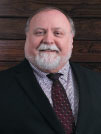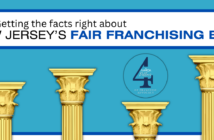Recoverable depreciation explained
Franchisees often find themselves in a difficult situation during a property-insurance claim. To use an old saying, they find themselves between a rock and a hard place after a catastrophe. The “rock” is the hotel brand and its design requirements inside hotels, and the “hard place” being the insurer and what they’re willing to pay for repairs.
Most brands have specific requirements regarding replacement materials. For example, carpet, flooring, furniture, and drapery must stay on brand location to location and from one room to the next. But after a major regional catastrophe or during a supply chain bottleneck, those materials aren’t always available.
It’s particularly frustrating for a hotel franchisee forced to replace, for example, the entire carpet of a whole wing because of damage in one room. And it’s the insurance adjuster’s job to make sure the company only pays for damaged property.
Rock, meet hard place.
Still, franchisees should be aware of every possible dollar on the table, so let’s explore the notion of recoverable depreciation and answer three big questions. These funds can make a massive impact on your ability to repair your property, up to brand standards, after a loss.
1. WHAT IS “RECOVERABLE DEPRECIATION?”
Recoverable depreciation is the gap of funds between actual cash value and replacement cost value for both the structure and contents portion of your property-damage claim.
- Actual cash value is the price of an item that has depreciated.
- Replacement cost value is the cost of replacement with a completely new item.
- Recoverable depreciation is the difference.
Recoverable depreciation is paid when the insured spends all the money agreed to, performs all the repairs agreed to, completes the approved repair and replacement, and provides proof of payment. An example of “proof of payment” would be a contract with a contractor and canceled checks with a “release of lien.”
2. HOW DO YOU DEVELOP A PROPER SCOPE OF LOSS FOR PAYMENT?
Imagine a tremendous thunderstorm outside and an air conditioning unit at your hotel malfunctions due to a lightning strike. As a result, water leaks into your lobby, damaging 300 square feet of carpet, pad, and subfloor. Your walls and furniture are also damaged, and of course, the A/C unit is destroyed.
You suspect more damage in the walls, but you can’t see it without thermal imaging. And when you take photos of the damage to forward to your claims adjuster, you feel the pictures don’t accurately show the damage in full.
The flooring, furniture, and A/C unit are all a few years old, and they’ve depreciated or lost value since initial installation. If your property policy only pays for actual cash value, your insurer will only pay for a piece of carpet that’s a few years old, secondhand furniture, and a thrift-store A/C unit.
A replacement-cost policy will pay to replace your damaged A/C unit, furniture, and flooring with new materials of like, kind, and quality, up to policy limits, of course. You also will have to pay your deductible. That’s an amount you’ll need to put toward repairs before insurance kicks in.
But, once you have an agreed scope of loss and meet your policy conditions, recoverable depreciation is available to collect provided you meet the qualifications.
Many insurers will pay a claim in two phases. First, they’ll attempt to pay you the actual cash value of depreciated carpet, furniture, and equipment. Then, once you take a few steps to prove to the insurer that you’re replacing the property, you can get a second check for the recoverable depreciation.
3. WHY DON’T MORE HOTELIERS COLLECT THEIR FULL SETTLEMENT?
Most franchisees are self-made businessmen who act as the general contractor, hiring various subcontractors to perform structural repairs. In addition, many will often trade contents with other hotels they own to mitigate costs.
Mitigating costs works well until receipts for labor come up significantly less than the agreed scope of work. Or a decorated scheme changes while the claim is pending. After all, there is only peace of mind in delegating leadership of construction projects or going dollar-for-dollar retail with a franchise vendor after the claim gets settled.






